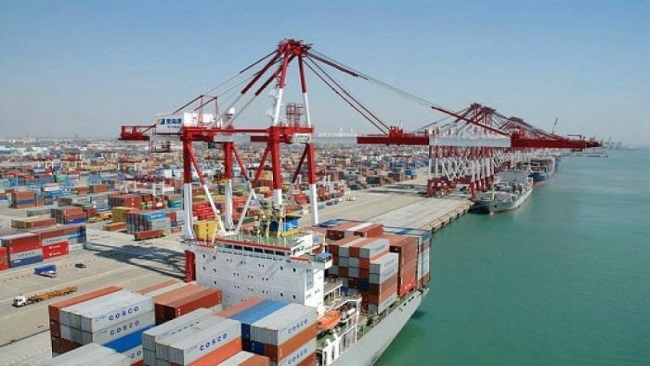Kribi Autonomous Port To Transport Central African Countries’ Minerals

The Kribi Autonomous Port popularly known by its French acronym, PAK, is bracing itself to transport minerals mined from both Cameroon and other Central African Economic and Monetary Commission (CEMC) countries, especially from North Gabon and North Congo.
But to be able to actualise this important project, the port has to first build a mineral terminal.
“A Build-Operate-Transfer scheme is envisaged which includes the financing, construction and exploitation of the terminal by private partners before handing it over to government,” said Yves Melingui, head of the financial engineering unit at the Kribi Autonomous Port.
The mineral port construction, according to Melingui, is within the integral industrial logistics programme of PAK as well as a whole range of economic models, including mining and transportation by road or rail.
“The construction of the mineral terminal is more than ever before envisaged because the principal vocation of the Kribi port is to permit the putting into use of the numerous mineral resources which the countries of the CEMAC zone are endowed with”, a senior source in Kribi Autonomous Port who elected for anonymity because he is not authorised to speak on behalf of the port told HumAngle in Douala on Wednesday.
The construction of the port which is being carried out by China Harbour Engineering Company (CHEC), is currently in its second phase.
The Work so far realised include the extension of the quay wall by 715 metres and the extension of the protection dyke by 675 metres as well as the development of the port yard which has an area of about 37 hectres.
Estimated at over 400 billion FCFA (800 million dollars), the project is being financed through a Chinese Eximbank loan and the government of Cameroon.
The construction of the port has been a source of political friction between English speaking Cameroonians and their French speaking compatriots as Anglophones see the project as having been developed at the expense of the construction of a deep seaport in Limbe, which has been on the drawing board since the reunification of the English and French speaking parts of Cameroon in 1961.
“They created a new port in Kribi to the exclusion of the Limbe deep seaport which they had been promising to build from day one of the reunification.
“This has always been seen by Anglophones as a spat on the face. It is a sort of betrayal because Francophones think citing a big port in English speaking Cameroon would enable Anglophones to use it to import equipment with which to start a war of independence.
“By so thinking and doing, they actually fanned the embers that brought about the current insurrection by English speaking Cameroonians,” said political scientist Ekongolo Edward in Douala.
Support Our Journalism
There are millions of ordinary people affected by conflict in Africa whose stories are missing in the mainstream media. HumAngle is determined to tell those challenging and under-reported stories, hoping that the people impacted by these conflicts will find the safety and security they deserve.
To ensure that we continue to provide public service coverage, we have a small favour to ask you. We want you to be part of our journalistic endeavour by contributing a token to us.
Your donation will further promote a robust, free, and independent media.
Donate HereStay Closer To The Stories That Matter




